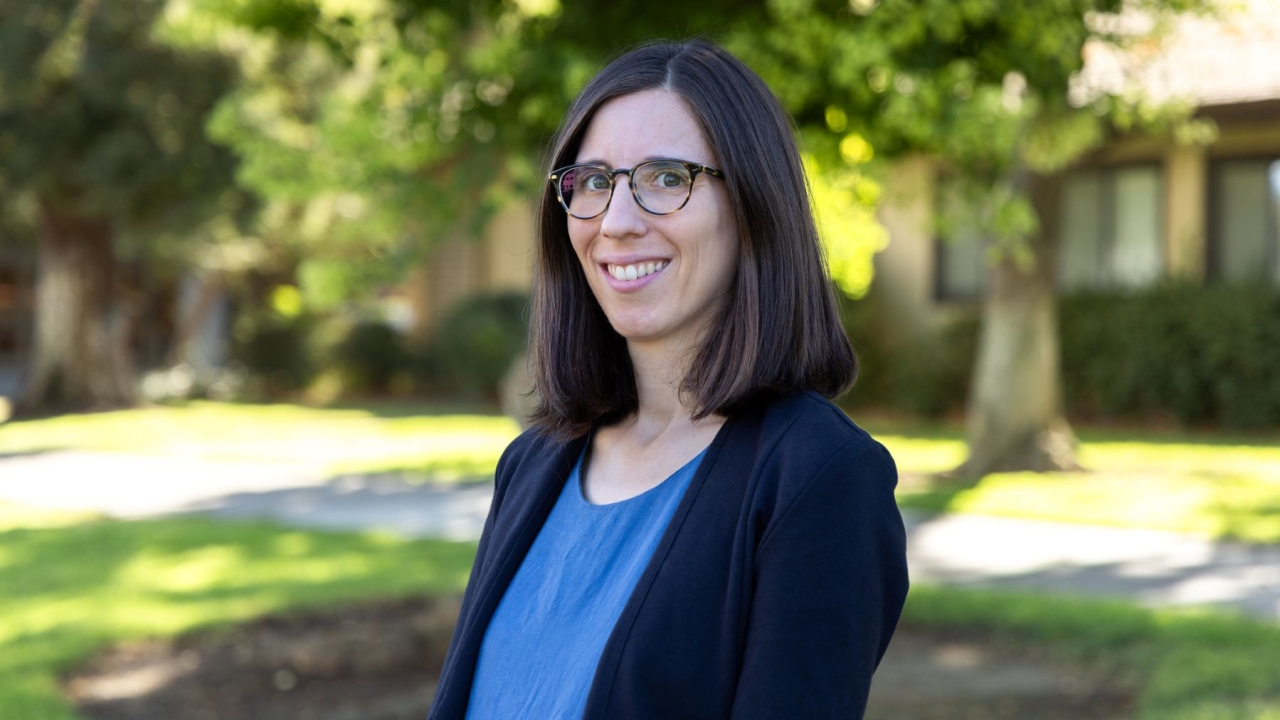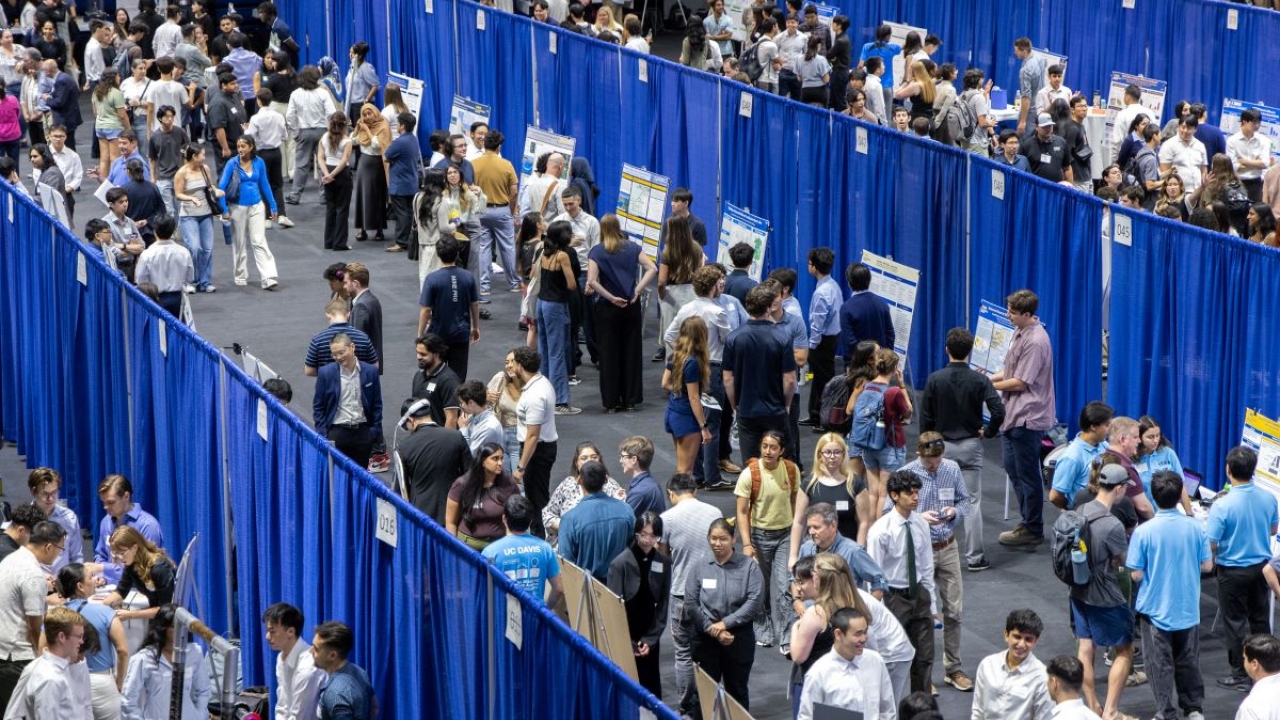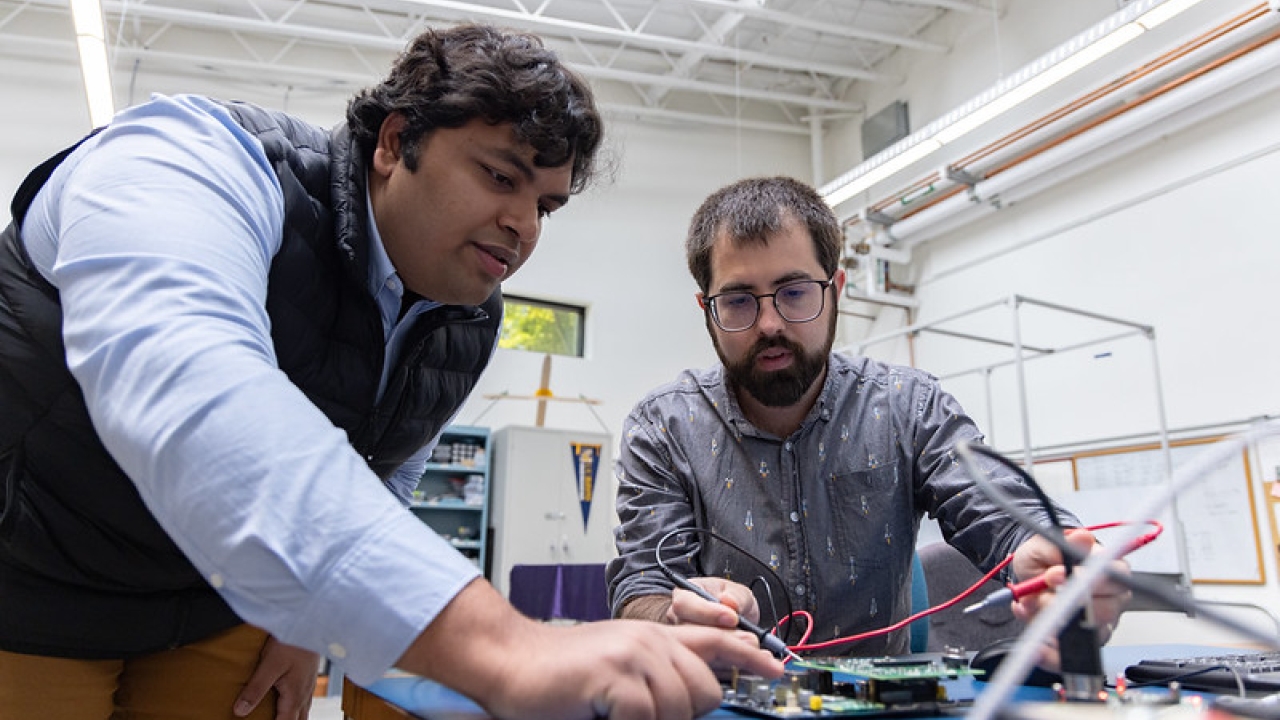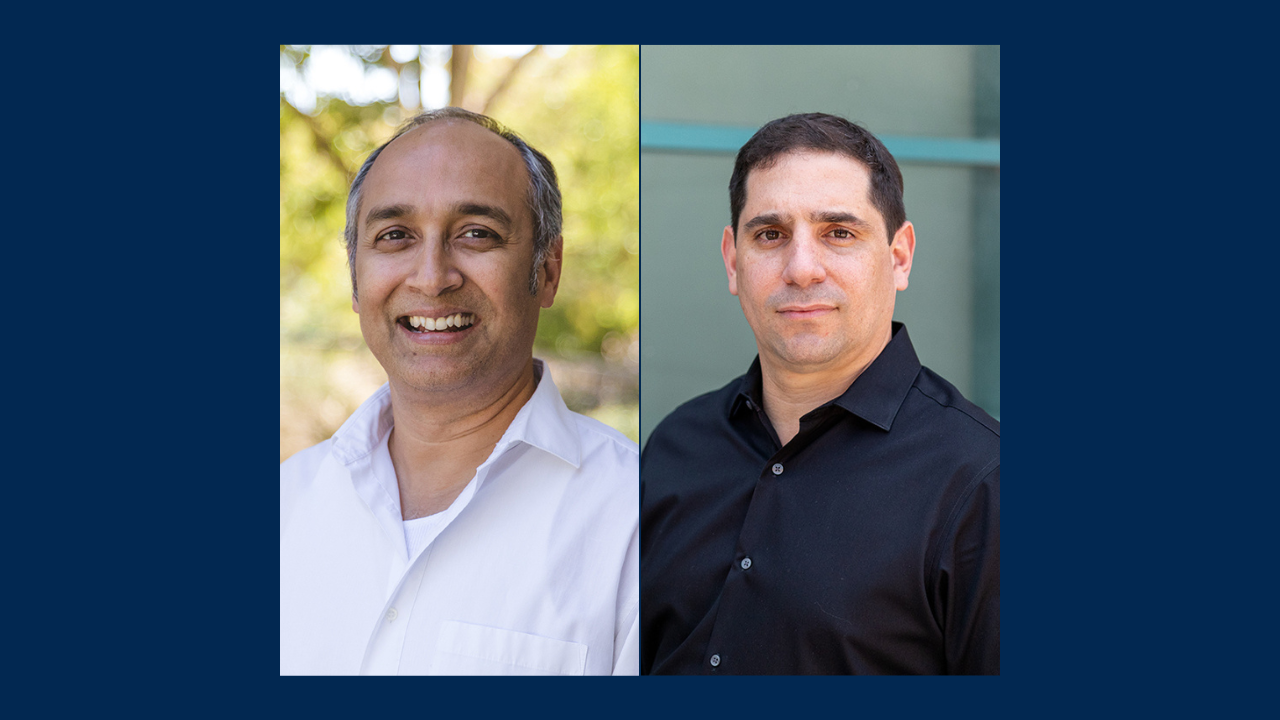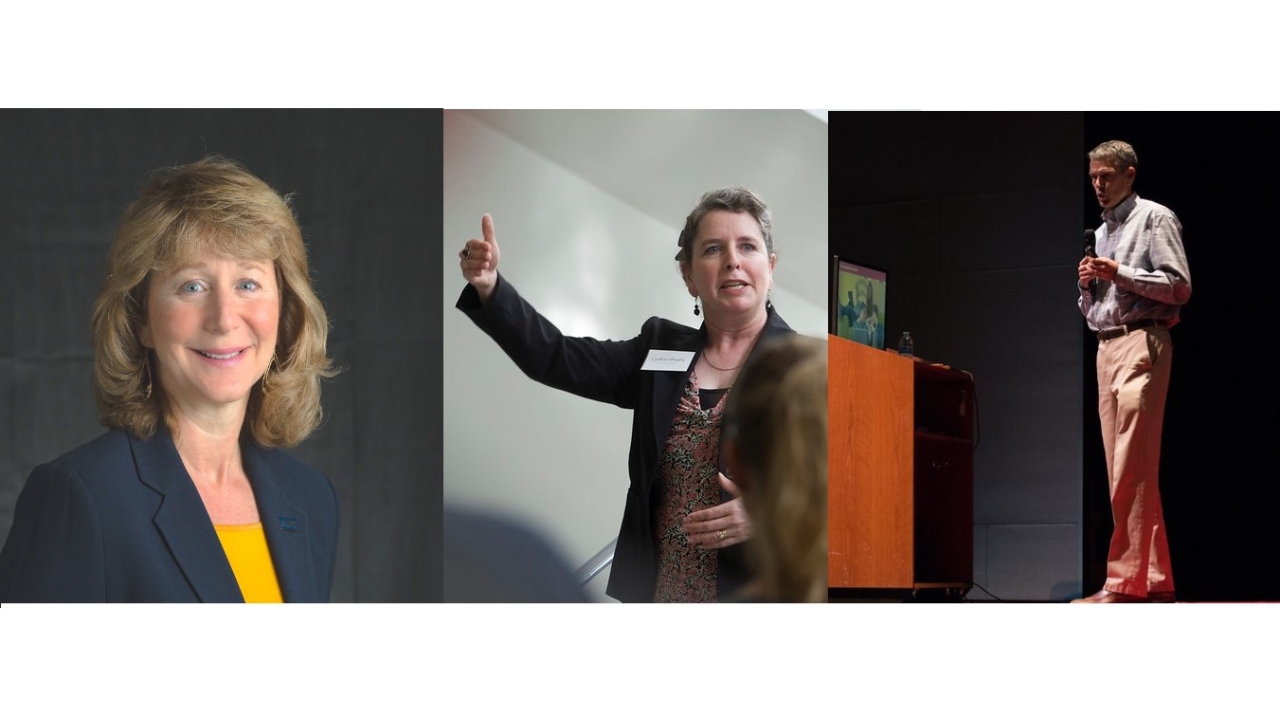
Securing and Succeeding in an Engineering Job
College of Engineering Dean Jennifer Sinclair Curtis developed a new course, Securing and Succeeding in an Engineering Job, when she realized that there was a need for a holistic, consistent career development course across all of the majors in engineering. This course, ENG 98, is geared toward the development of first-year engineering students, so they can start preparing for a successful engineering career early on in their academic studies. She began teaching the class in spring of 2018 and has continued to lead this course every other quarter.
Many engineering students who are first-generation, low-income, or from underserved groups do not have a network of individuals that can assist them in their career development or in their job search. Many of these students lack first-hand knowledge of the creative and diverse types of work in which engineers are engaged.
This course helps all students understand the career options available to them as an engineering graduate. Students gain information on how to successfully land an internship or job in engineering and how to thrive in
that role. This course also helps students develop valuable professional, leadership and life skills.
“Some students don’t understand the importance of career development early on. In this course, they spend their time progressively developing these skills in addition to their regular coursework, so that all together they will be prepared to get a job after graduation,” said Curtis.
This teaching opportunity also gives Curtis, whose daily schedule is dominated by meetings with faculty and staff, a chance to hear directly from the students and affirm to the students the college’s commitment to student success.
“When I first started in my role as dean, I realized I hardly ever got to see any undergraduate students in my job. I really wanted to get connected with these students in a direct way,” said Curtis.
The first class in the course begins with Dean Curtis and graduated seniors, who discuss the lessons they learned while they were undergraduate students. They also discuss the benefits of graduate school versus industrial employment after graduation. The following class is focused on building a resume and is taught by the Internship and Career Center. The remainder of the classes are taught by College of Engineering alumni.
“I initially developed this course to get students involved in career development right away, so they could spend four years building their resume and their career skills to be ready for the work world when they finish their degrees,” said Curtis. “I do end up getting students up to their senior year because there is also value in the industry connections that are made between students and our guest speakers.”
The alumni instructors are highly successful practicing engineers who are well known to Curtis, possess outstanding presentation and communication skills and employ engineering undergraduates. Each alumni instructor presents on a topic while touching on their career path throughout the lecture. Many of the students reach out and make connections with the industry guest speakers after they present.
“I offer a lot of very practical ideas for how to go about proactively finding the exact right job by building and utilizing their professional network as well as some mental tools to help provide focus and energy,” said Scott Maxwell, B.S. ‘84, M.S. ‘86, mechanical engineering, founder and partner of OpenView Investments. “It is a critical course for undergraduates and I am really happy that the dean has taken this on. It shows a lot of leadership and the importance of the subject to the students, which is great.”
Having multiple alumni speak to class introduces students to a wide variety of practicing engineers who are very passionate about and fulfilled in their work. This gives the students more reasons why they should stick it out early on in the engineering major when the time commitment to their studies is significant and the first year curriculum contains fewer engineering courses and more foundational and general education courses.
“There are a lot of job options for any undergraduate, particularly those in engineering. Getting a jump on these options and thinking through how one should put together classes and internships to respond to those options is extremely important. The earlier this can be done, the better,” said Michael Hurlston, ’88, M.B.A. ’90, M.S. ’91, electrical engineering, president and chief executive officer of Synaptics Incorporated. “A piece of advice I like to give students is to do what you enjoy. If you enjoy a job, the chances are that you will be successful. Passion and success almost go hand-in-hand.”
Cynthia Murphy-Ortega, B.S. ’91 chemical engineering, Manager, University Partnerships and Association Relations, Chevron Corporation, touches on professionalism when she speaks to the ENG 98 students. She focuses on how to communicate in a professional manner in their interpersonal interactions with others, in the college space and as they transition into the work space.
“It is easy to say the word professionalism as though it’s one entity, but it’s really a multitude of things. You are representing your personal brand. How will people think of you in the work environment? We want the students to think about that early on,” said Ortega. “It’s who you are 365 days of the year, not just in the middle of an interview. Your defining principles shouldn’t change.”
Many students have emailed, messaged on LinkedIn and conveyed in person to Curtis their deep appreciation for the course, its content and how they now feel better prepared and more confident in their search for engineering employment. Students indicate that the new skills they learn and their interactions with the speakers are extremely valuable in their job search process.
“I feel fulfilled knowing that we are providing this critical knowledge to our students when they might not have known this information otherwise,” said Curtis.
Alumni Speakers in ENG 98
Joseph Moore, B.S. ‘91, civil engineering
Scott Maxwell, B.S. ‘84, M.S. ‘86, mechanical engineering, engineering
Rob Tobias, B.S. ‘86, electrical engineering
Jeff Hoopes, B.S. ‘80, civil engineering
Cynthia Murphy-Ortega, B.S. ‘91, chemical engineering
Margie Evashenk, B.S. ‘89, electrical engineering
Alfred Chuang, M.S. ‘86, computer science
Prem Jain, M.S. ‘77, engineering
Tim Bucher, B.S. ‘86, electrical engineering
Rose McCallen, B.S. ‘84, Ph.D. ‘93, engineering
Francis Lee, B.S. ‘74, electrical engineering
Bruce Raabe, B.S. ‘88, civil engineering
Suzy Taherian, B.S. ‘90, mechanical engineering/materials science and engineering
Brian Underwood, M.S. ‘91, materials science and engineering
Michael Hurlston, B.S. ‘88, M.B.A. ‘90, M.S. ‘91, electrical engineering, engineering

